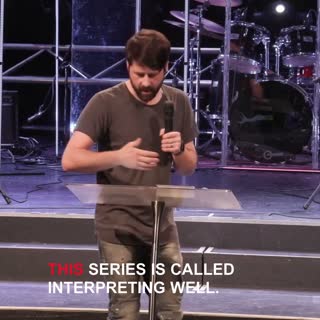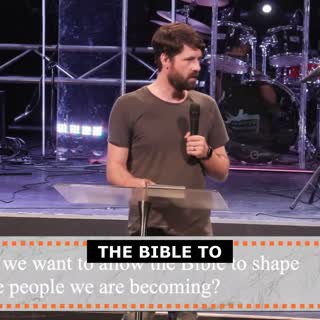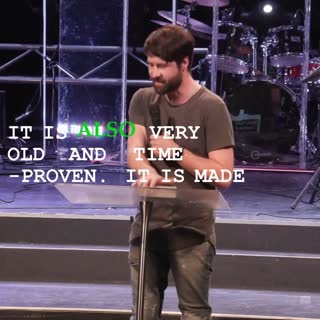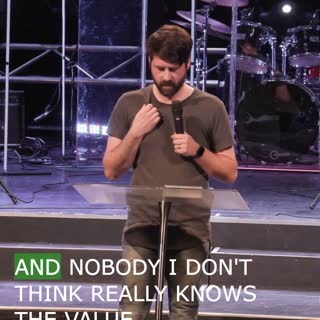Valuing Scripture: Transformative Power and Global Access
Devotional
Sermon Summary
Bible Study Guide
Sermon Clips
"If you haven't seen it, I would recommend it, but with caution. It's very violent, so just be careful with that. But it's a post-apocalyptic story, like at the end of the world kind of thing, about this blind ninja man who walks across the United States over a course of 30 years, holding in his possession the last known remaining copy of the Bible in existence." [00:24:52] (37 seconds)
"This series is called Interpreting Well. And over the next few weeks, we're going to be looking at how we can allow Scripture to form us into people who are more like Jesus." [00:26:42] (15 seconds)
"The Bible to shape us. The first reason we can find actually a little hint in Psalm 119 verse 52, where he says, I meditate on your age-old regulations. Oh, Lord, they comfort me. Age-old regulations." [00:29:55] (22 seconds)
"It is also very old and time-proven. It is made up of the same books that churches were learning from and sharing around as early as the first century A.D." [00:31:41] (14 seconds)
"Actually, according to Wycliffe Global Alliance, as of last year, there are still nearly 100 million people worldwide who don't have any scripture in their own language. Isn't that unbelievable?" [00:42:17] (18 seconds)
"And nobody I don't think really knows the value and the power of scripture more than people who live in places who are persecuted for accessing the Bible you know the Bible has power we know that but sometimes that power is incredibly threatening and there are cultures and nations in the world today who make it illegal for people to access a Bible or to meet in a worship gathering like this or to be a Christian because there is power in that even if they have the Bible in their own language they're not allowed to access it can you believe that" [00:50:47] (48 seconds)
"A heart that desires more of God's Word, a commitment to not take for granted anymore but to value it like a treasured possession and earnestly seek to have it transform our lives." [01:01:21] (18 seconds)
Ask a question about this sermon
"This series is called Interpreting Well. And over the next few weeks, we're going to be looking at how we can allow Scripture to form us into people who are more like Jesus." [00:26:42] (15 seconds)
"The Bible to shape us. The first reason we can find actually a little hint in Psalm 119 verse 52, where he says, I meditate on your age-old regulations. Oh, Lord, they comfort me. Age-old regulations." [00:29:55] (22 seconds)
"It is also very old and time-proven. It is made up of the same books that churches were learning from and sharing around as early as the first century A.D." [00:31:41] (14 seconds)
"Actually, according to Wycliffe Global Alliance, as of last year, there are still nearly 100 million people worldwide who don't have any scripture in their own language. Isn't that unbelievable?" [00:42:17] (18 seconds)
"And nobody I don't think really knows the value and the power of scripture more than people who live in places who are persecuted for accessing the Bible you know the Bible has power we know that but sometimes that power is incredibly threatening and there are cultures and nations in the world today who make it illegal for people to access a Bible or to meet in a worship gathering like this or to be a Christian because there is power in that even if they have the Bible in their own language they're not allowed to access it can you believe that" [00:50:47] (48 seconds)
"A heart that desires more of God's Word, a commitment to not take for granted anymore but to value it like a treasured possession and earnestly seek to have it transform our lives." [01:01:21] (18 seconds)














